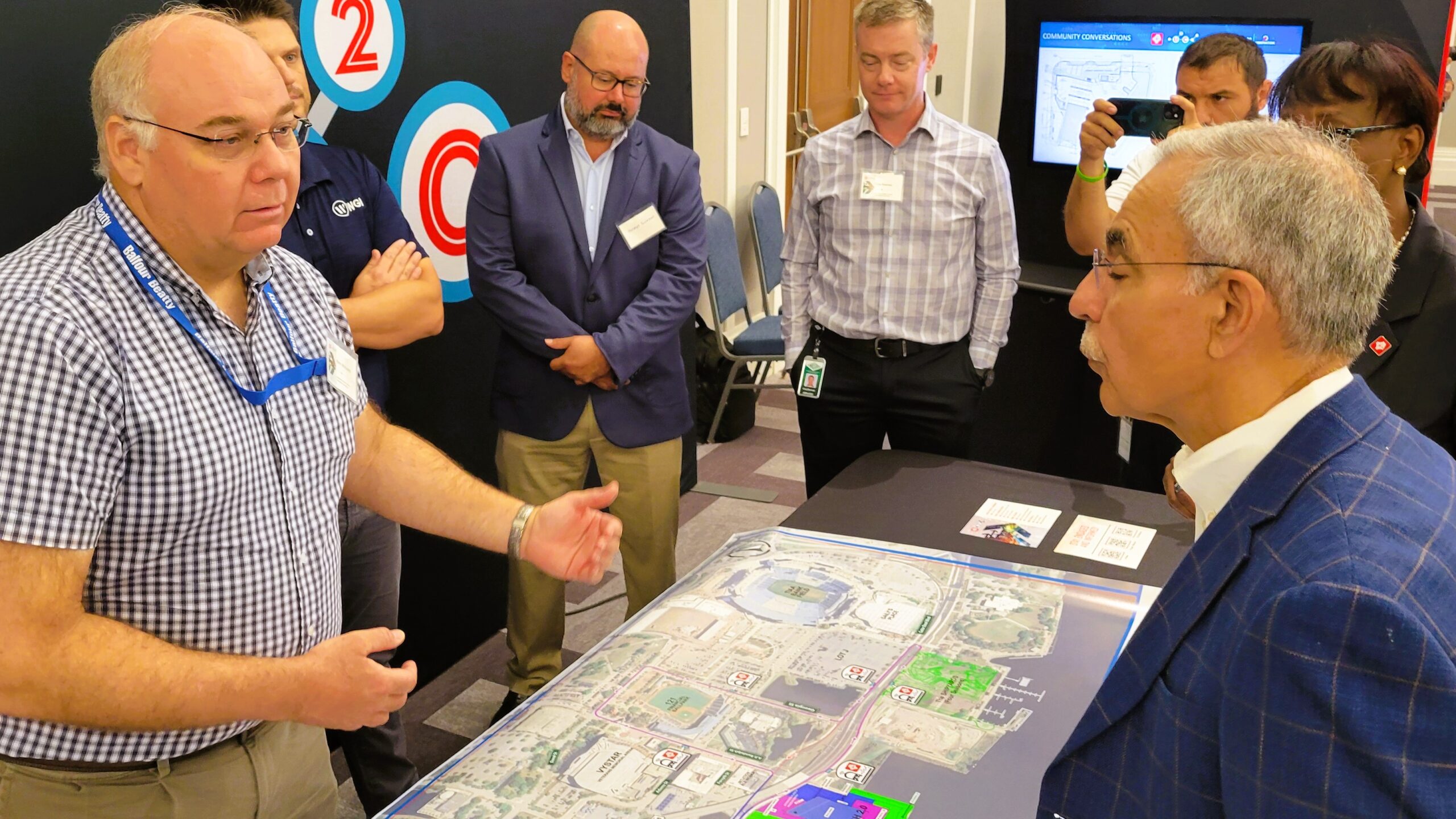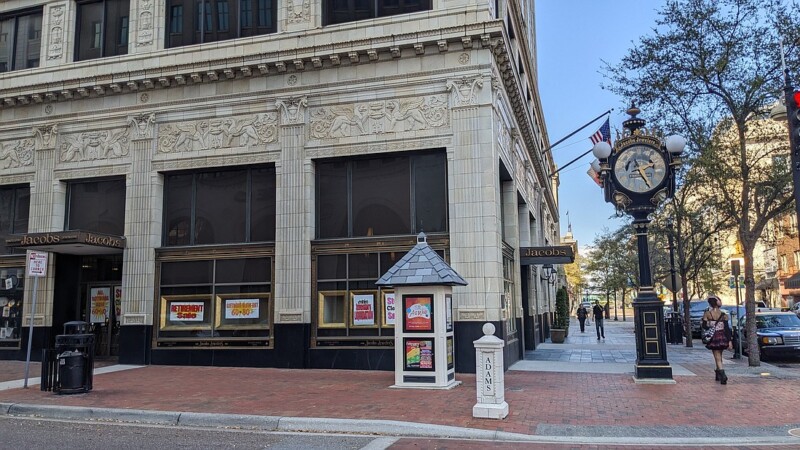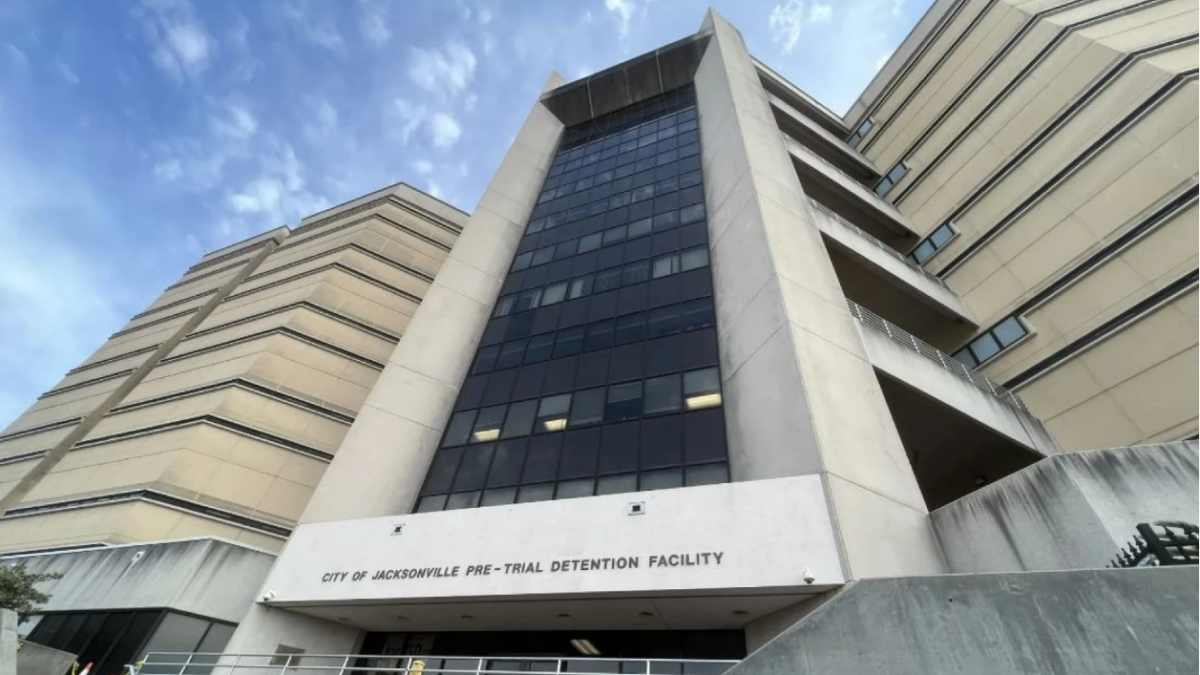The first phase of an autonomous people mover system could be carrying passengers up and down Bay Street by June 2025, before spreading through Downtown, San Marco, Riverside and beyond, according to JTA.
JTA held community updates Monday so people could learn more about the Ultimate Urban Circulator, called U2C for short — a conversion of the Skyway that has been in the planning for years.
The first of three phases will consist of 14 autonomous electric vans carrying people between the Jacksonville Center for the Performing Arts area to Everbank Field, Vystar Veterans Memorial Arena and 121 Financial Ballpark.
Construction will begin soon to modify the first 3.2-mile stretch of Bay Street with 12 bus stops for the autonomous vans. JTA also will build an Autonomous Innovation Center at Bay and Jefferson streets where the entire $65 million system will be monitored.
“It is about micro-mobility and providing almost door-to-door service,” said Angie Williams, U2C director for JTA.
“Think about you finding a parking space and you want to go someplace else on Bay Street,” she said. “You have to go back to your car; you have to move your car, find another parking space. With this, you get on at one space, you can go all throughout Bay Street, go catch a game, go to a restaurant and have dinner, and not have to be inconvenienced by moving a car or finding another parking space.”
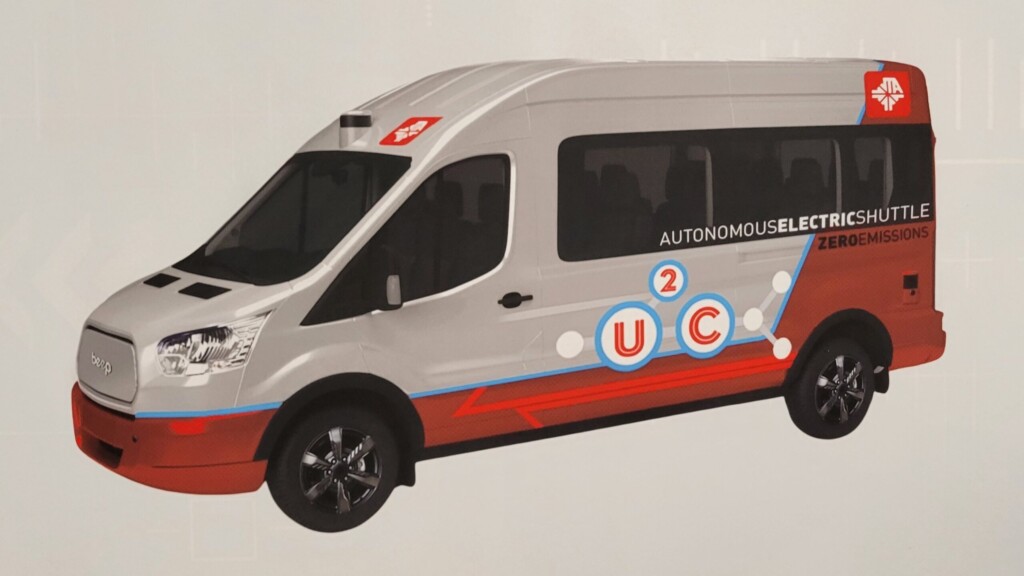
The vehicles, able to travel up to 35 mph each, will run every five to seven minutes. They will head east along Water Street, then jog onto Hogan Street before jumping onto Independent Drive, the first stop at the Riverfront Plaza park now under construction. The vehicles will move up Newnan Street and onto East Bay Street with a stop at a planned city park there, then head east past Berkman Plaza and the planned Shipyards West park, with another stop.
The planned Museum of Science & History, opposite Intuition Ale Works, will get a stop, possibly at its entrance. Then the U2C vehicles will get a multiuse path to provide separation between bicyclists and pedestrians as they head east toward another stop at The Shipyards complex, where the Four Seasons hotel and city marina are under construction. The hotel and marina could see the U2C vehicle loop into them for the stop.
The U2C vehicles will then head west on Gator Bowl Boulevard before traveling north around the 121 Financial Ballpark, then down A. Philip Randolph Boulevard past Vystar Veterans Memorial Arena (another stop) and Intuition to rejoin East Bay Street. The next stop will be at Catherine Street across from the fire museum and USS Orleck naval museum, then more stops at Newman and Main streets.
The Autonomous Innovation Center at West Bay and North Jefferson streets will include staff to monitor the U2C vehicles via their on-board cameras, and other video systems along the route. The central control system will have a rooftop solar microgrid to supply power to its systems as well as to recharge the vehicles, which will stop there between their routes.
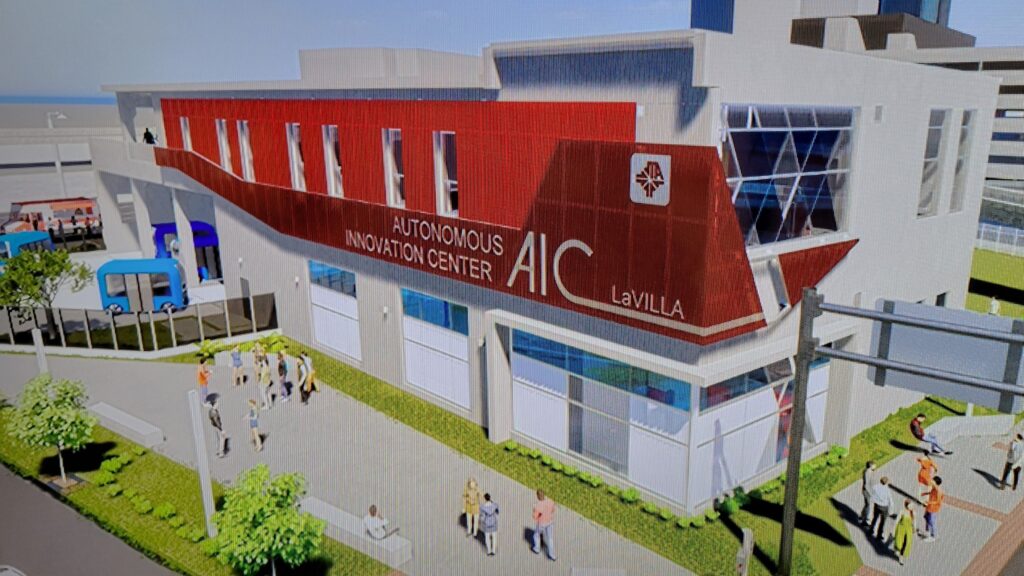
“We want that to be the center where all things autonomous vehicle happens,” Williams said. “Right now we have shovels in the ground. This past weekend, we did an electrical relocation in partnership with JEA, and you will see work now being done.”
U2C vehicles are fully autonomous, with laser, sonar and radar guidance and detection systems able to navigate around cars and pedestrians, interact with each other and react to stoplights and crosswalks, JTA says. Some changes will be made along the Bay Street corridor, with sensors and camera to support them as they move among the usual automotive traffic. There also will be covered U2C stops with benches and automated information on them, Williams said.
“It would include a kiosk that gives directional information,” she said. “We have worked very close with our Jacksonville Transportation Advisory Committee to make sure we have either audio or (Braille) because we want the stations to be branded as one of the best ADA stations for everyone to use.”
Some of the U2C stops also will be transfer points for regular buses, JTA officials said.
In the first year of service, an attendant will be aboard the vehicles to ensure “safe and smooth operation,” and educate new riders on autonomous vehicle service, Williams said. But like many new cars, there are multiple auto-stop systems in case something — or someone — pulls in front, Williams said.
“We have pedestrian detectors and we have cameras all throughout the corridor as well as on the vehicles,” Williams said. “The safety attendant is there for one year, the first year, and a part of that is that there are a lot of people who are really apprehensive about this type of technology.”
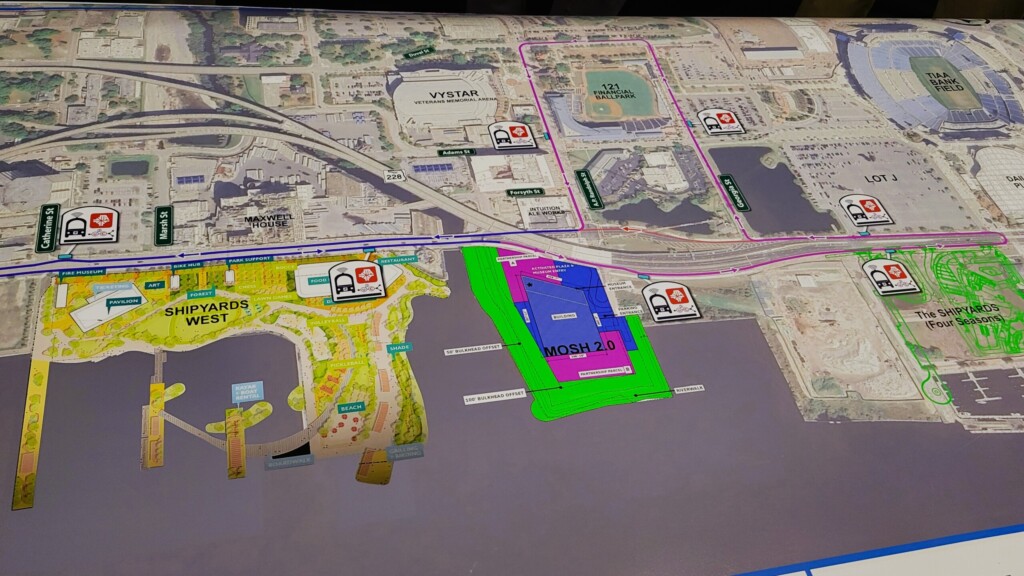
The second of the U2C’s three phases will start with conversion of the existing 2.5-mile Skyway system in parts of Downtown and San Marco into an elevated roadway for autonomous vehicles. Ramps will allow the autonomous vehicles to travel from Bay Street to the overhead roadways all the way to a stop at the Jacksonville Regional Transportation Center at LaVilla. The U2C vehicles also will cross the Acosta Bridge to the Southbank and become a 10-mile system.
The U2C’s third phase will connect to the city’s Brooklyn and Riverside area’s new condominiums, offices and established homes, shops and restaurants on surface streets, with funding available now for project engineering.
The JTA has been testing autonomous people movers since it first proposed the U2C program in 2017, even using one in 2020 at the Mayo Clinic to transport COVID-19 samples around its Southside campus. On Feb. 20, two U2C vehicles began moving people along a mile-long route on the Downtown campus of Florida State College at Jacksonville, the first campus in Florida to have autonomous shuttles in use.
Still, the overall plan has met skepticism in some parts of the community. Opponents say the technology is not advanced enough to justify the cost.
The estimated cost of all three phases could be as much as $400 million for a full build-out. The first phase’s funding includes a $12.5 million grant from the U.S. Department of Transportation, $13 million from the Florida Department of Transportation, $1 million from the North Florida Transportation Planning Organization and $22.5 million from JTA, which also is providing in-kind services for work.
The second phase will soon be put out to bid, Williams said. That $246 million phase will be funded through the extension of the local option gas tax, with no construction date set yet.
JTA will hold its annual Autonomous Vehicle Day Conference from 9 a.m. to 5:30 p.m. May 31 at its Test and Learn Facility at 3191 Armsdale Road. The conference, open to the public, will focus on the present and future of autonomous technology. That will include the U2C, with AV platform companies, transportation officials and fleet operators on hand. Information and registration is at autonomousvehicleday.com.
An earlier version of this story misidentified Angie Williams. She is U2C director for JTA. Some statements about U2C operations also have been updated.



